第52章 34(2)
This experience taught the Church a lesson. Enthusiasm alone would not set the Holy Land free. Organisation was as necessary as good-will and courage. A year was spent in training and equipping an army of 200,000 men. They were placed under command of Godfrey of Bouillon, Robert, duke of Normandy, Robert, count of Flanders, and a number of other noblemen, all experienced in the art of war.
In the year 1096 this second crusade started upon its long voyage. At Constantinople the knights did homage to the Emperor. (For as I have told you, traditions die hard, and a Roman Emperor, however poor and powerless, was still held in great respect). Then they crossed into Asia, killed all the Moslems who fell into their hands, stormed Jerusalem, massacred the Mohammedan population, and marched to the Holy Sepulchre to give praise and thanks amidst tears of piety and gratitude. But soon the Turks were strengthened by the arrival of fresh troops. Then they retook Jerusalem and in turn killed the faithful followers of the Cross.
During the next two centuries, seven other crusades took place. Gradually the Crusaders learned the technique of the trip. The land voyage was too tedious and too dangerous.
They preferred to cross the Alps and go to Genoa or Venice where they took ship for the east. The Genoese and the Venetians made this trans-Mediterranean passenger service a very profitable business. They charged exorbitant rates, and when the Crusaders (most of whom had very little money) could not pay the price, these Italian "profiteers" kindly allowed them to "work their way across." In return for a fare from Venice to Acre, the Crusader undertook to do a stated amount of fighting for the owners of his vessel. In this way Venice greatly increased her territory along the coast of the Adriatic and in Greece, where Athens became a Venetian colony, and in the islands of Cyprus and Crete and Rhodes.
All this, however, helped little in settling the question of the Holy Land. After the first enthusiasm had worn off, a short crusading trip became part of the liberal education of every well-bred young man, and there never was any lack of candidates for service in Palestine.
But the old zeal was gone. The Crusaders, who had begun their warfare with deep hatred for the Mohammedans and great love for the Christian people of the eastern Roman Empire and Armenia, suffered a complete change of heart. They came to despise the Greeks of Byzantium, who cheated them and frequently betrayed the cause of the Cross, and the Armenians and all the other Levantine races, and they began to appreciate the vir- tues of their enemies who proved to be generous and fair opponents.
Of course, it would never do to say this openly. But when the Crusader returned home, he was likely to imitate the manners which he had learned from his heathenish foe, compared to whom the average western knight was still a good deal of a country bumpkin. He also brought with him several new food-stuffs, such as peaches and spinach which he planted in his garden and grew for his own benefit. He gave up the barbarous custom of wearing a load of heavy armour and appeared in the flowing robes of silk or cotton which were the traditional habit of the followers of the Prophet and were originally worn by the Turks. Indeed the Crusades, which had begun as a punitive expedition against the Heathen, became a course of general instruction in civilisation for millions of young Europeans.
From a military and political point of view the Crusades were a failure. Jerusalem and a number of cities were taken and lost. A dozen little kingdoms were established in Syria and Palestine and Asia Minor, but they were re-conquered by the Turks and after the year 1244 (when Jerusalem became definitely Turkish) the status of the Holy Land was the same as it had been before 1095.
But Europe had undergone a great change. The people of the west had been allowed a glimpse of the light and the sunshine and the beauty of the east. Their dreary castles no longer satisfied them. They wanted a broader life. Neither Church nor State could give this to them.
They found it in the cities.